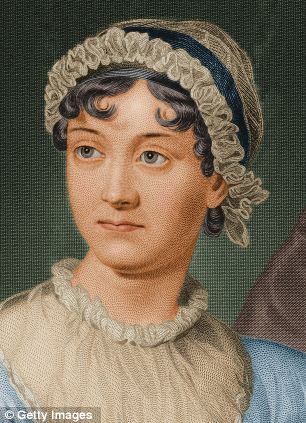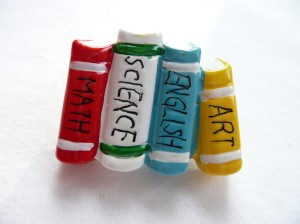From my experience, a lot of people seem to think that skills and concepts learned in English classes aren’t of much use outside of the literary sphere. I, on the other hand think that knowing how to write is important to almost any career one would aspire to have. So I sat down with my girlfriend, Hannah, who is a Biochemistry major to find out if English plays any part in her scientific endeavors.
Have you taken any English classes at Dickinson? Can you tell me a little bit about that? i.e. the topic of the class, the types of work you were assigned
Although it’s not considered a typical English class, as a first semester, first year student here at Dickinson, I, like everyone else, was required to take a first-year seminar, and my seminar was on the topics of Marx, Nietzsche, and Freud. I consider this course an English class even though it wasn’t in the English department at Dickinson because, like English classes that I have taken at Dickinson, the aim of the seminars even though they’re topical and can be in different departments, is to prepare incoming college students to write, read, and analyse critically at the collegiate level.
Most of the assignments in my FYS included close readings of very complex texts: works by Niezsche which are very philosophical and kind of abstract and the focus of the class was taking a challenging piece of literature and kind of grappling with it and extracting what you coud from it. Additionaly, after reading those texts we would work to better ourselves as writers. We learned the difference between founded and unfounded hypotheses and conclusions. And I really look at my FYS as my first ‘English class’ experience at Dickinson.
In the second semester of my first year here I took an English 101 which was called ‘Jane Austen and Her World’. The topics of the class were both Austen’s works of literature as well as her life in the context of the period of history in which she lived and how historical events that she experienced in her life shaped her writing and her opinions about the world. In that class we read all six of Austen’s novels in chronological order, starting with Northanger Abbey and ending with Sense and Sensibility. Assignments in that class were two 3-page ‘response’ papers which could be written on any of the novels we had read up before they were due. For those papers we had to follow fairly liberal parameters and were allowed to write on pretty much anything that interested us that fell within those parameters. Since I had gotten used to English classes where students are given very specific topics and guidelines to write with, I was really pleased with the amount of flexibility I was afforded. In addition to the papers, were were also expected to post weekly responses to questions about our readings on our class Moodle forum which I enjoyed because of how casual they were. I also enjoyed reading other peoples’ posts because I got to read perspectives that weren’t immediately apparent to myself as I was reading through the novel.

What, in your opinion, were some valuable skills that you learned from that class?
I specifically chose to take an English 101 class last year because I wanted to cultivate my skills as a writer. Coming into college I felt like writing was really a skill that I hadn’t fully developed in high school and I wanted to get better at writing really early in my Dickinson career because I knew that writing would be a huge part of my academic career here and most likely also into my professional life post-Dickinson.
I would say the most valuable skill from the English class I took last semester was how to write formally and concisely. I learned how to generate a strong and well-founded hypothesis and how to use textual evidence to support the hypotheses that I had formulated. That’s an applicable skill not only in an English class and in other classes that I’ll take at Dickinson but I really see that as an applicable skill in careers that I may pursue in the future. Learning how to write and learning how to strongly and concisely state your argument and then to support that argument through other sources and other documents is a crucial skill in being able to communicate and persuade throughout the collegiate and professional world.
How have those skills helped you as a Biochemistry major?
I think that, as a Biochemistry major, a huge misconception that I get from other people is that I spend my whole day in the laboratory and that, as a science major, I just spend my days mixing solutions or pipetting and that I don’t come into contact with situations in which I need write and convey my thoughts, but that couldn’t be further from the truth. In fact, as scientists, we’re doing research and we’re making discoveries and trying to better understand the world around us but if we can’t convey our thoughts and if we can’t convey our findings then all the work we’ve done is for nothing. After I complete an experiment I enter into a very formal scientific paper-writing stage of my experiment so after I’ve concluded all my experimentations I’m then tasked with taking all of the data and the hypotheses that I’ve tested and the results that I’ve come up with and turning that into a paper which can not only thoroughly but concisely report the findings of my experiments. And these research papers, even though they are highly scientifically specialized, are very similar to papers I’ve written in my English classes. For example, we open up scientific papers with what’s called an ‘abstract’ which is a summary of what I’m studying, what I’m looking to test, the methods I’m going to be using, and the results that I got.
This is basically like the introduction of an English paper in which you creatively introduce the book that you read or the article you’re going to be talking about and then you introduce some questions that you’ve formulated from your reading that you’re working towards either supporting or rejecting. After you present your hypothesis you kind of allude to how you’re going to show that your hypothesis is accurate or it should be rejected. There are a lot of parallels between a scientific paper that I write to convey the results of my experiment and an English paper that I write to convey an idea that I formulated after reading a text.
Do you think that taking a course(s) in English is important even for those not pursuing a career in a particularly writing-oriented field? Why or why not?
I think that it’s crucial for college students to be exposed to at least one English course during their time in college because even if you’re not pursuing a career that’s not ‘writing oriented’, every career that you will come across in your post-Dickinson life and professional career will incorporate writing in some aspect. For myself, as a scientist, I encounter writing when I need to communicate with others the results of the experiments that I have done and when I need to persuade people that my work is relevant and that the work that I’ve done contributes to our knowledge of science as a whole. So even though I don’t plan on entering a career after Dickinson that we would consider ‘writing oriented’, I know for a fact that writing will always be a part of my professional life because I’m always going to need to communicate with fellow scientists, persuade people that my work is relevant, and to communicate with and educate the general public about science. I feel that my English classes here at Dickinson have contributed to my skills as a writer and I feel that I wouldn’t be able to effectively communicate if I hadn’t taken English courses that taught me how to formulate an argument and support that argument.

Wow dude you really hit the word-count quota that wasn’t there. I like that you did you interview on this topic. Your girlfriend’s response to the overarching question of “is writing a useful skill for non-english majors” was what I expected it to be. This is a question I’ve asked myself before regarding multiple subjects, including english. Is this a question you’ve posed to anyone else before/afterwards? Yourself even? The other part of my praise for this post comes from how well it relates to your theme, while still stepping outside the box enough to gather data. Nicely done!
LikeLike
I really liked this post because I am also a Biochem major, and find writing skills to be extremely important in the sciences. I, unlike Hannah, did not take an English class early on at Dickinson, which I wish I had! I find that I struggle with writing and really want to become a better writer. I can really relate to this post and I thought your questions were great!
LikeLike
I really like this post for how it speaks to the liberal arts as a whole. I don’t mean to be a fanboy of the liberal arts, but it clearly has its merits, as you have shown. Increasing job competitiveness means you have to stand out in your field, and so being a good writer as well as proficient in your field is indispensable.
This course is my first english course, and I have found that it really enhances my overall academic experience.
LikeLike